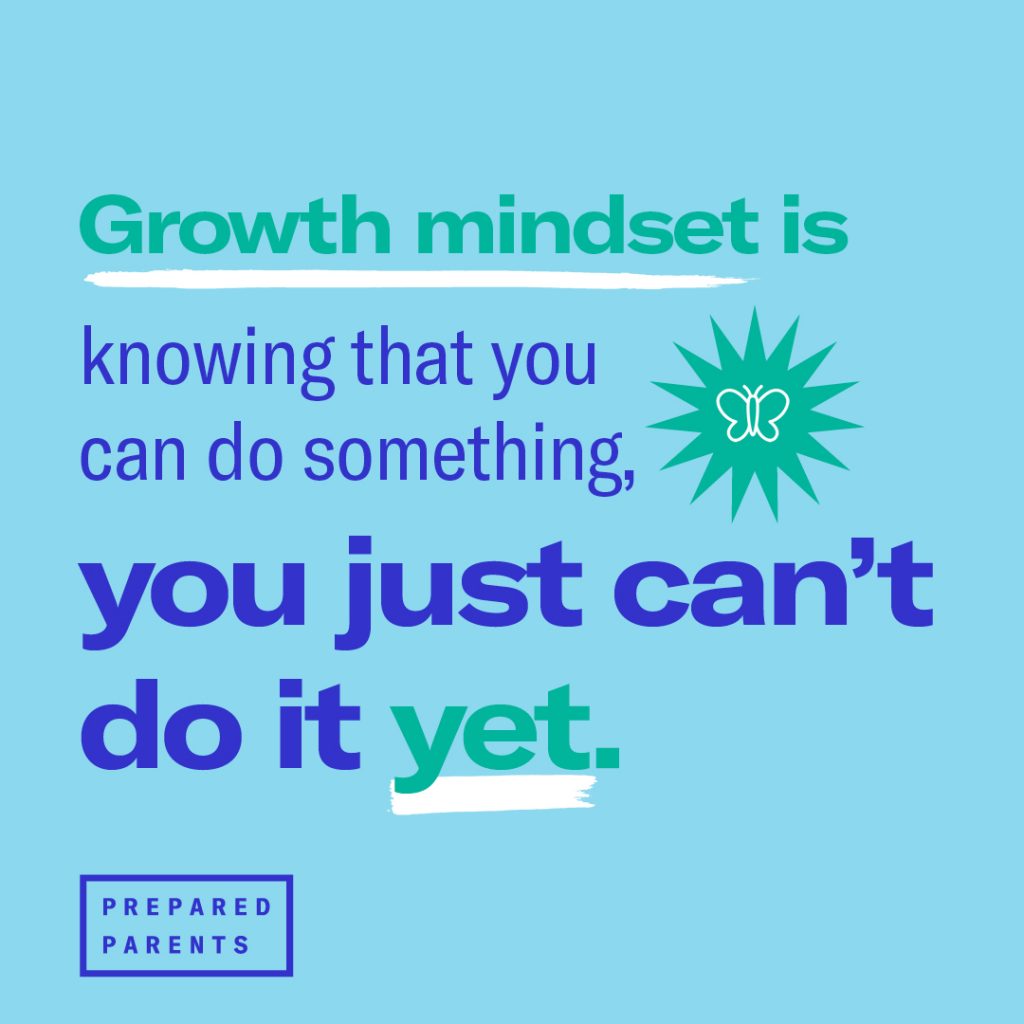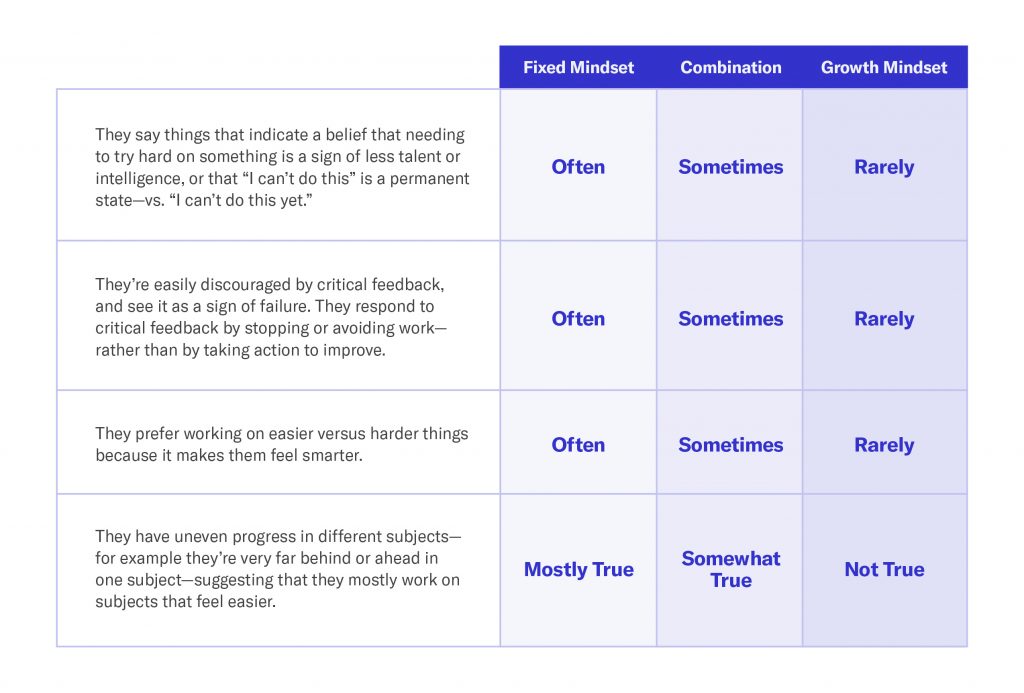Musician John Legend was four years old when he first sat down at a piano. Today he’s an EGOT, a winner of all four major awards in the entertainment industry: Emmy, Grammy, Oscar, and Tony. Yes, he is incredibly talented, but as he has shared, it took persistence and tenacity.
“When I was younger, I didn’t really know that you can just get better at things. I think we’re so used to the idea that you’re talented at something and it’s sort of fixed… This idea that things are just fixed is proven not to be the case. You can get better at things. You can grow and even people that are innately talented still need to go beyond that basic talent that they have and cultivate it.”
-John Legend
John’s describing growth mindset, a theory developed by nationally-acclaimed psychologist Carol Dweck, a pioneer in the study of human motivation.
Having a growth mindset means believing abilities and knowledge grow and evolve with effort and support over time. It’s knowing that when you can’t do something, you just can’t do it yet. Growth mindset is one of the 16 Habits of Success that a kid can develop, practice, and improve through hard work, good strategies, and encouragement from others.
It’s all in our head.

We’re capable of growth mindset because of brain plasticity. That doesn’t mean we stretch our gray matter like Silly Putty. Brain plasticity refers to the fact that thoughts and actions can actually change our brain’s structure and functioning. Trying harder and employing different strategies strengthens it.
And it doesn’t stop as we age. Neuroscientists have discovered that the brain is plastic at every stage of life. There is never a day when our neural structures are totally fixed. We can always learn ways to improve our abilities. That’s especially significant for the kid who thinks they’ll never be good at a subject like math, because they actually do have the capability to get better. It requires a shift from a fixed mindset which assumes that character, intelligence, and ability can never change in a meaningful way.
It’s possible for a kid to have a fixed mindset in one situation and a growth mindset in another. The kid who’s a sports phenom and spends hours dunking a basketball, may give up and not even try to write the assigned report on the War of 1812.
Before you can help a kid shift toward a growth mindset, you need to understand their mindset in different situations. You can use the below chart to evaluate your kid’s mindset when they do something they enjoy and something they struggle to accomplish. Once you compare the outcomes, you can build a strategy to foster a growth mindset.

You can download this activity to use at any time.
Great! We all do! Luckily, like all Habits of Success, a growth mindset is something you can build and strengthen. Download our Growth Mindset tool below to dig deeper into:
- what growth mindset is and isn’t;
- how to assess your kid’s mindset;
- how to start down the road to a stronger growth mindset.
Adopting a growth mindset isn’t going to happen overnight. It will develop over time. But with each new challenge, remind your kid, “You did it before; you can do it again.” Prepared Parents Founder and Executive Director, Mira Browne, talks about how we model mindset for our kids in this video.


